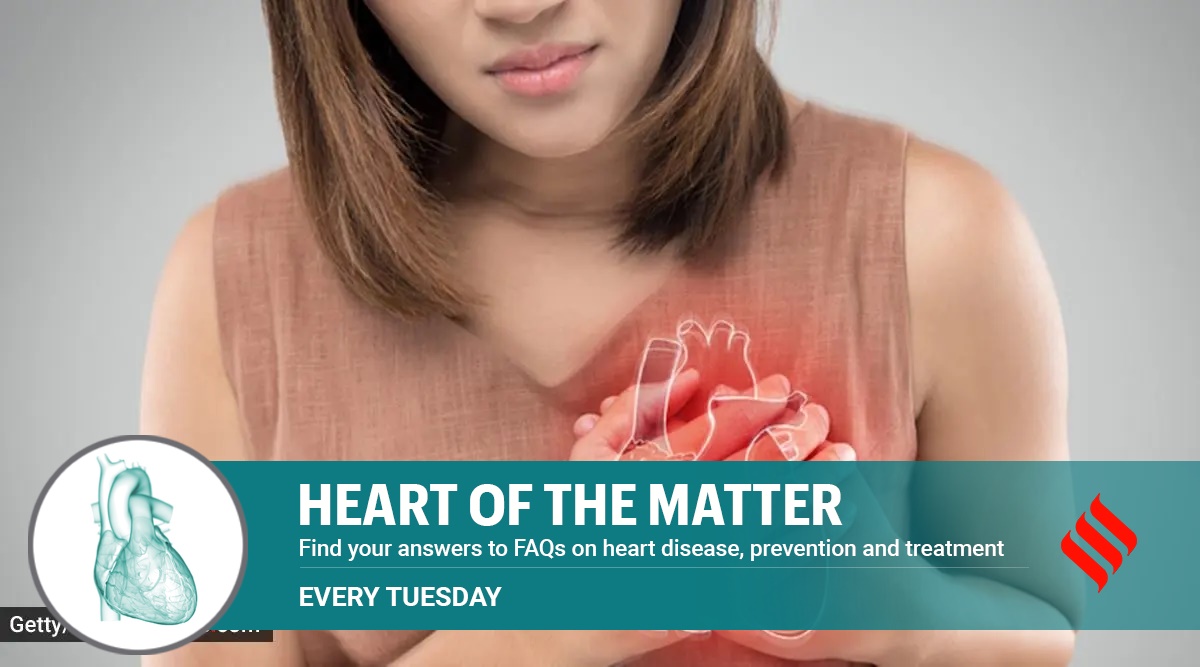With the uncharacteristic winter spell in many parts of the country, particularly North India, sudden winter deaths, usually in the morning, are becoming a source of anxiety for all of us. News reports have compounded problems. One of the latest reports said how 98 people died due to heart and brain stroke in Uttar Pradesh’s Kanpur alone. According to data released by the Laxmipat Singhania Institute of Cardiology and Cardiac Surgery, Kanpur, 723 heart patients had come to the emergency and outpatient department of the hospital in the past week.
WHAT’S A SUDDEN CARDIAC DEATH?

A sudden cardiac arrest happens when your heart’s electrical system malfunctions and suddenly becomes chaotic. The heart beats dangerously fast and your ventricles may flutter or quiver (ventricular fibrillation). When this happens, the heart clearly cannot pump oxygenated blood and send it to the rest of your body. Without emergency treatment, a person loses his life within an hour of onset of symptoms.
WHAT ARE TRIGGERS FOR WINTER MORNING HEART ATTACKS?
There are several reasons which we need to understand and react to appropriately.
(1) Circadian rhythm: First and foremost, there could be a problem with the body’s circadian rhythm, which we commonly refer to as our internal body clock. This is responsible for regulating times for our wakefulness and tiredness. It dips and rises throughout the day, triggering the release of certain chemicals in your system, increasing and decreasing their volume according to its peaks and troughs. Now when there are problems with the circadian rhythm, there could be an imbalance of these chemicals. Researchers have already found that at around 6.30 am, the circadian system sends out an increased amount of PAI-1 cells, which stop blood clots from breaking down. The more PAI-1 cells in the blood, the higher the risk for a blood clot that leads to a heart attack. This usually happens between 4 am to 6 am.
2) High Blood Pressure (BP): Vaso-constriction, or when blood vessels narrow down to keep core areas of the body warm and force the heart to pump more, raises your blood pressure. Now if your body is used to a certain blood pressure range, it cannot adjust fast enough when it begins to fluctuate in an unexplained manner in responding to external stimuli. So, avoid going out in cold weather if you find your heart beats per minute or pulse rate fluctuating as well. It is advisable to stay indoors and wrap yourself up in comfortable woollens. An elevated BP also puts pressure on existing plaques to rupture and break away, causing sudden blockages.
3) Air pollution: When your air quality index is higher than 450 and you are breathing in particles that obstruct normal air flow during breathing, it leads to an increased coagulation of the blood. Pollutants cause inflammation in your body tissues and platelets have a tendency to attach themselves to the inflammation points in the body, causing shortness of breath and blood clotting. The corresponding low physical activity fuels platelet adhesiveness and aggregability.
Most Read 1Chandrayaan-3 mission: Dawn breaks on Moon, all eyes on lander, rover to wake up 2As Indo-Canadian relations sour, anxiety grips Indian students, residents who wish to settle in Canada 3Karan Johar says Sanjay Leela Bhansali did not call him after Rocky Aur Rani: ‘He’s never called me but…’ 4Gadar 2 box office collection day 40: Hit by Shah Rukh Khan’s Jawan onslaught, Sunny Deol movie ends BO run with Rs 45 lakh earning 5Shubh’s tour in India cancelled: Why is the Canada-based singer facing the music?
4) Lack of a proper fluid intake: Many people do not realise this but just because you do not feel thirsty enough in extreme cold, you do not hydrate yourself properly. This leads to serious issues of dehydration, the blood volume is less, it becomes sticky and accelerates clot formation. Similarly, just drink enough and do not overdo it because a lack of perspiration in lower temperatures means extra fluid could build up in the lungs and stress the cardio-vascular system.
5) Lack of exposure to sunlight and consequent low levels of Vitamin D: In the absence of sunlight, our bodies are hardly able to synthesise vitamin D, which actually hinders the buildup of scar tissue in the heart post an episode. So, there is a need for Vitamin D supplementation.
WHAT ABOUT PREVENTION?
Also ReadRight or left arm? What is the right way of measuring BPHow a German hospital used ayurveda as supportive therapy to help Parkins…What if I cannot sleep more than 5 hours despite my best efforts? How to …Count your carbs: How much rice can a diabetic have? Is brown rice better…
(1) I cannot over-emphasise the need to monitor your blood pressure at least once a week. And make sure to check your levels at different time slots over days to watch out for 24-hour variations.(2) Wear proper clothing when stepping out.(3) Limit exercises outside the house and shift your regime indoors. You can do the treadmill, weights and yoga. But make sure that your routine is individualised as per the doctor’s advice. I would recommend static cycling as a good cardio-vascular activity compared to the treadmill for older adults as it does not put pressure on their knees and joints. Even small amounts of time devoted to cycling can lower rates of heart disease.(4) Winter check-ups are more needed than summer, so do not miss out on follow-ups as advised by your cardiologist.
© IE Online Media Services Pvt Ltd


